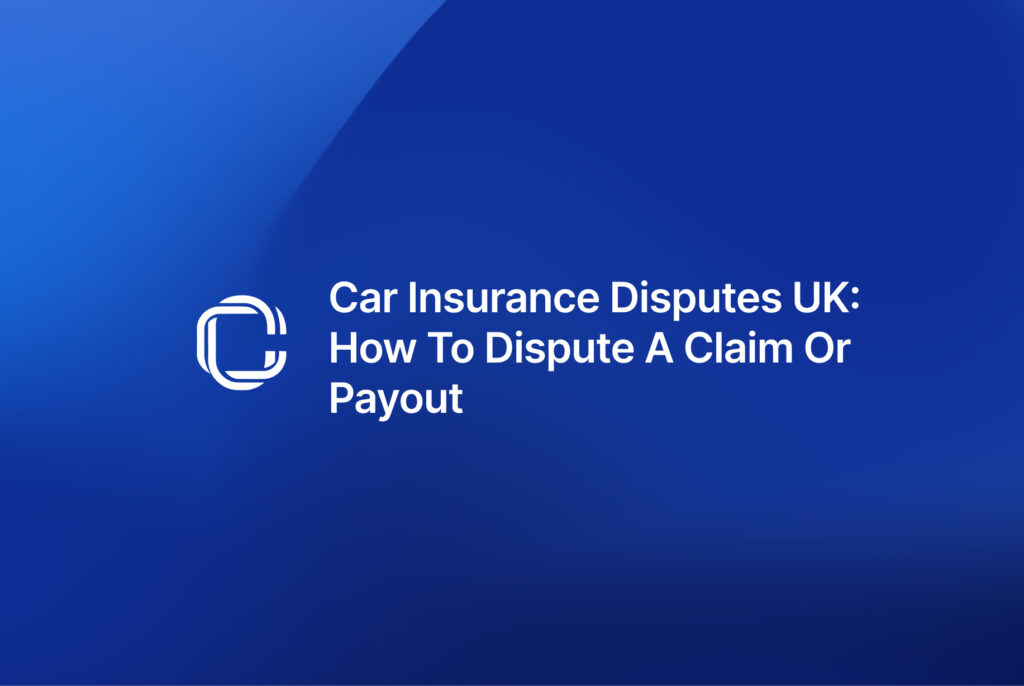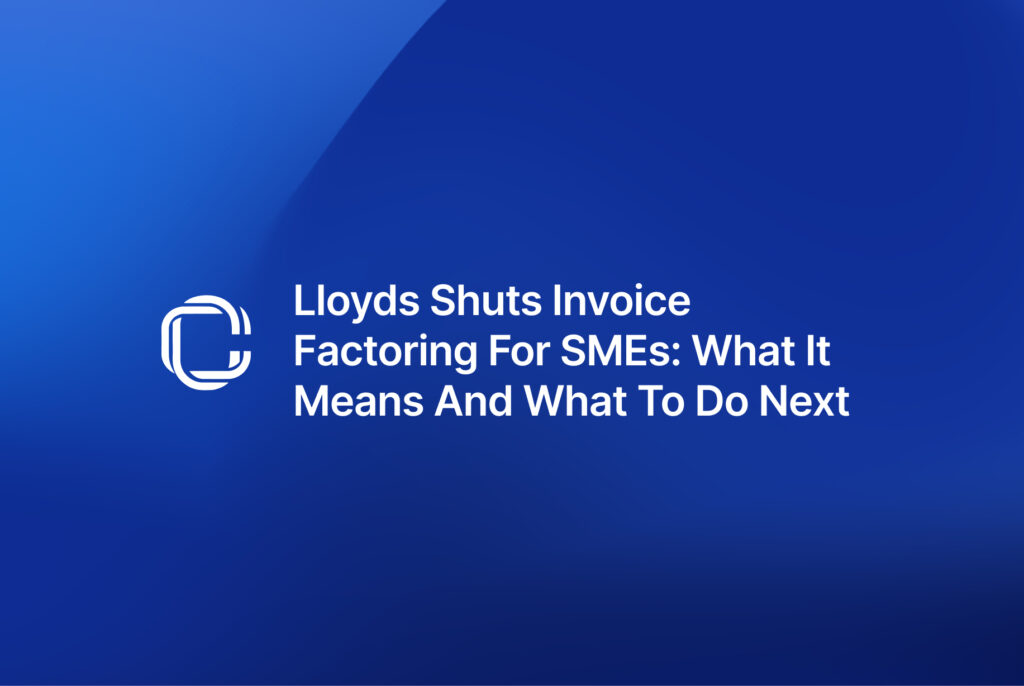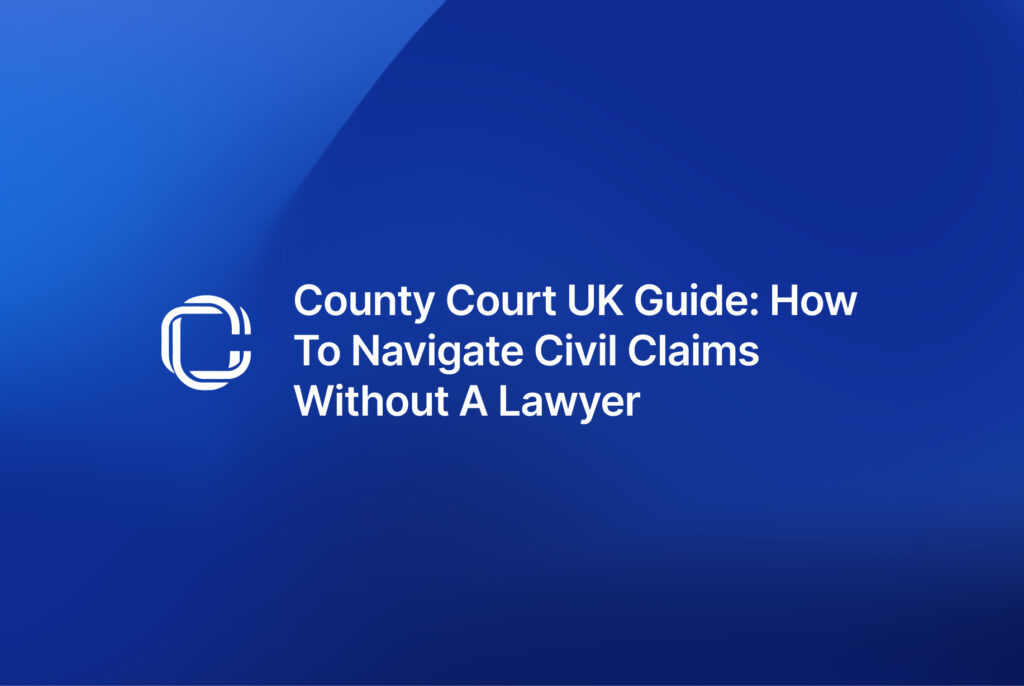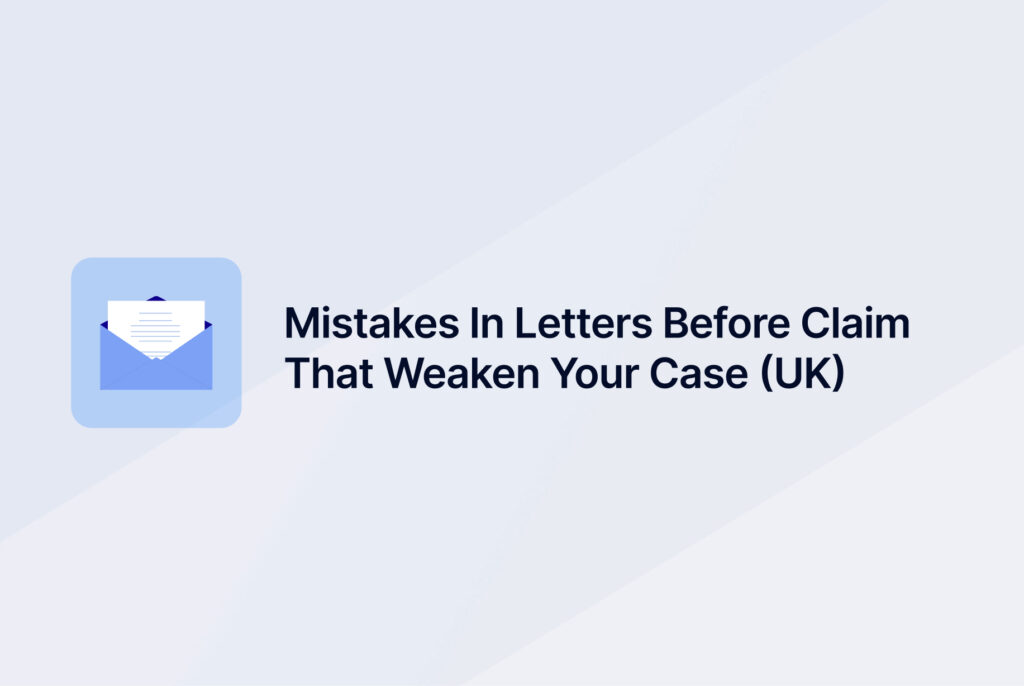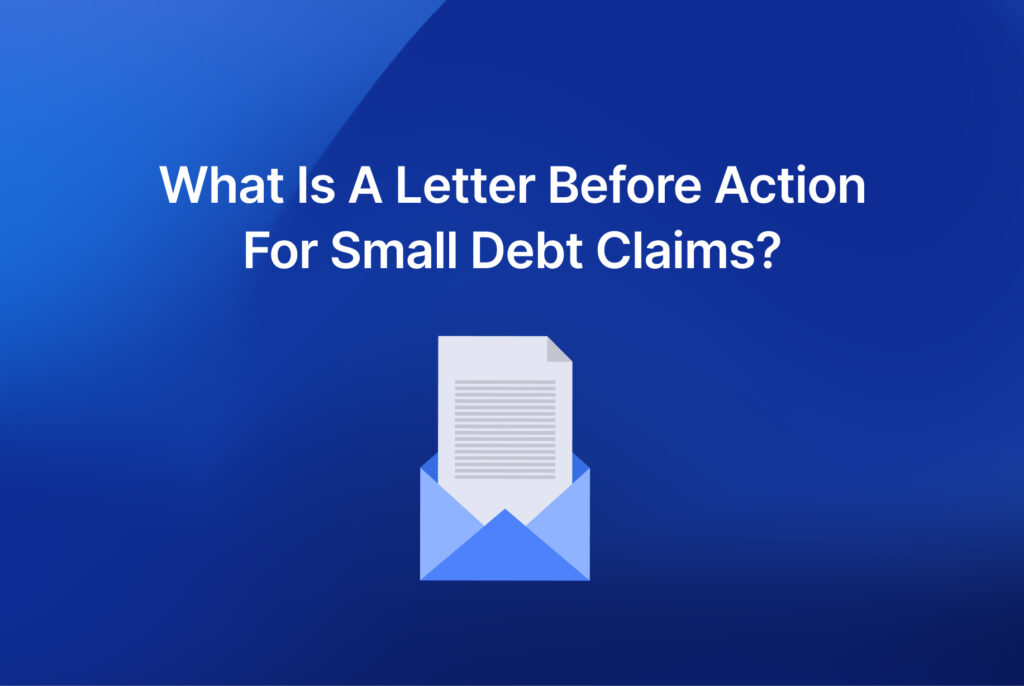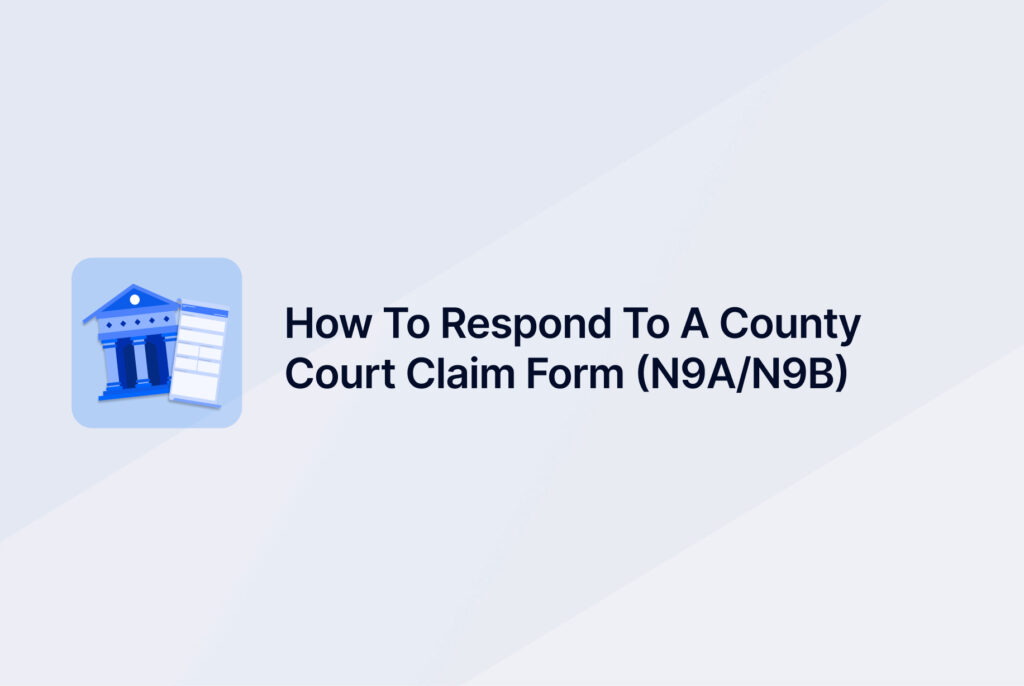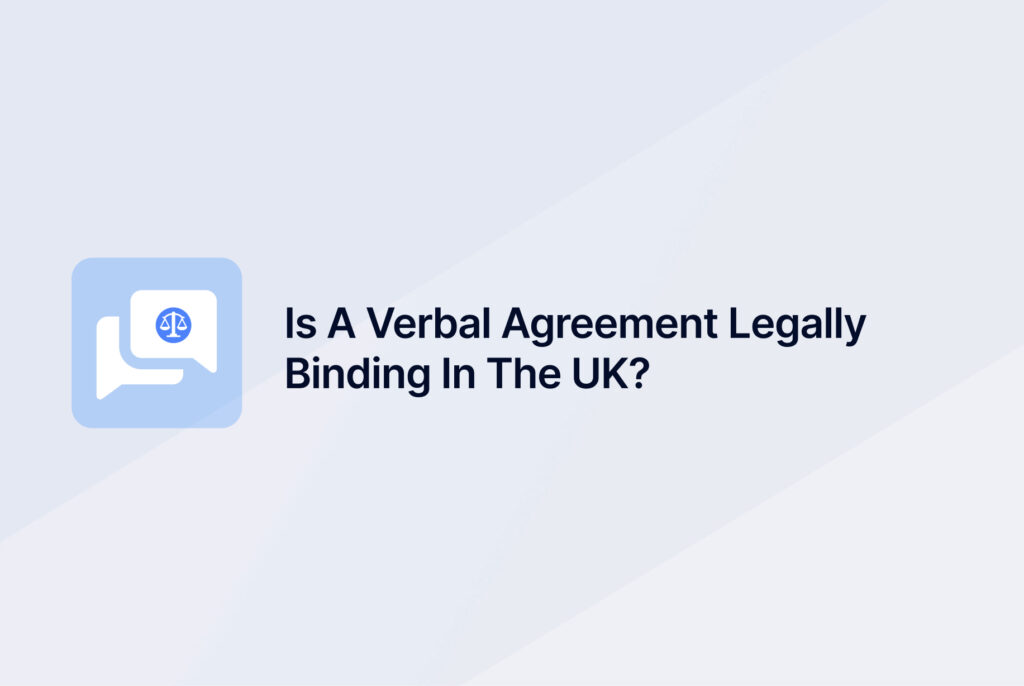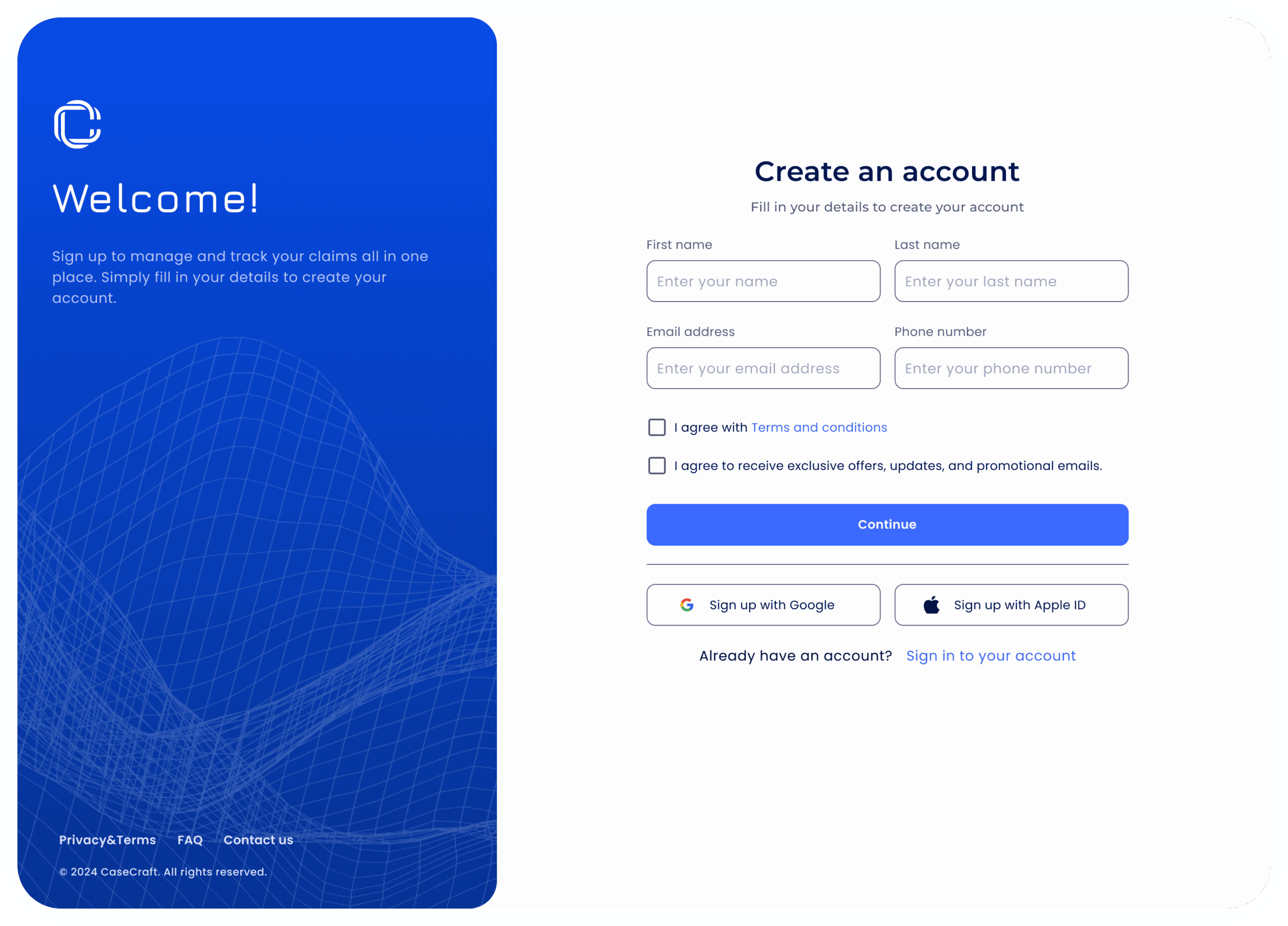Someone owes you money, but there’s no written contract? Learn what counts as proof, how to claim, and your legal options in the UK.
In the UK, not having a written agreement doesn’t mean you can’t recover money owed without a contract. Informal agreements and handshake deals are often legally binding, but you must be able to prove that a verbal or implied contract existed. Evidence could include text messages confirming the loan, bank statements showing a transfer, or witness statements. The small‑claims court generally deals with disputes up to £10,000, and cases above that are handled under the fast track or other court processes. To succeed, you need clear proof of what was agreed, you should follow the pre‑action protocol by sending a formal letter before action, and you must submit your claim through the court’s online system or by post.
Introduction
You lent a friend £800 to help with their car repair. Weeks turned into months; you still haven’t been repaid, and there’s no written agreement. Does this mean your money is gone forever? Many people assume that someone owes me money; no contract equals a lost cause, but that’s not true. Under English law, a verbal agreement for money owed can be enforceable if it meets the basic requirements of a contract. The challenge is proving that a promise to repay actually existed and that you fulfilled your part of the bargain.
Small claims in England and Wales are designed to provide an accessible path for recovering modest sums. The limit is usually £10,000, and claims above this fall into different court tracks. As CaseCraft.AI notes, the platform generates the right legal forms, guides you through evidence preparation and offers success‑based pricing. You pay a £15 setup fee and a 10% success fee only if your claim succeeds.
This guide will show that a no-written-agreement money owed situation doesn’t leave you powerless. We’ll explore what counts as evidence, the legal principles behind verbal contracts, and a step‑by‑step process to reclaim what you’re owed. You’ll also learn about common pitfalls and how platforms such as CaseCraft.AI make the small‑claims process quick and stress‑free.
Can You Claim Money Without a Contract in the UK?
Verbal and Implied Contracts Are Binding
Contrary to popular belief, verbal agreements are legally binding. A professional solicitor’s summary explains that oral contracts can be binding just like written ones, though they’re harder to prove. To be enforceable, a verbal or implied contract must fulfil four elements:
- Offer: One party makes an offer that can be accepted or rejected.
- Acceptance: The other party accepts the offer completely.
- Consideration: Both sides exchange something of value – money, goods, services or promises.
- Intention to create legal relations: Both parties must intend the agreement to be legally binding. Courts apply an objective test: would a reasonable person think the parties intended a contract?
If these elements exist, the court can enforce a verbal promise. However, the claimant must prove the contract’s existence and terms. The burden of proof lies on you to show the agreement was made and breached, and to demonstrate your losses. Without evidence, the case becomes “your word against theirs,” so collecting proof is essential.
Small‑Claims Limits and Jurisdiction
The small‑claims court limit in England and Wales is typically £10,000. Claims between £10,000 and £25,000 are usually allocated to the fast track, while cases above £25,000 go through a different process. Small claims deal with relatively simple disputes such as owed money, refunds, unpaid wages or minor landlord‑tenant issues.
If your claim is under £10,000, you can apply online or by post. Claims over £10,000 require different procedures and may involve the court’s fast track or multi‑track systems. When the debtor is based in Scotland or Northern Ireland, separate processes apply.
With no written contract, your claim must rely on evidence of an informal agreement. The following sections explain what types of proof the court accepts and how to gather them.
What Counts as Evidence of a Verbal or Informal Agreement?
Collecting evidence for an informal loan or handshake deal is vital. Courts accept the most relevant evidence as long as it is lawful and disclosed to the other side. Here are the most persuasive forms of proof:
Written Communications
- Text messages, emails and WhatsApp conversations confirming the loan and repayment schedule are powerful. For example, a debtor’s message saying “Thanks for the loan, I’ll repay you next week” shows acceptance and intention to pay.
- Keep a continuous record showing the context and timeline of discussions. Include messages acknowledging receipt of funds and promises to repay. Even informal chat logs can illustrate that a verbal agreement was made regarding the money owed.
- Screenshots and printouts should include dates, sender/recipient details, and message content. Back up digital files in multiple locations.
Proof of Payment or Bank Transfer
- Bank statements or payment confirmations prove that money was transferred. Ensure they show the date, amount, recipient and reference (e.g., “loan to John”).
- Screenshots of mobile banking apps can also serve as evidence when formal statements aren’t available. Include annotations explaining what each payment relates to.
- Pair these records with the borrower’s acknowledgement, such as “I received the £500 and will repay you,” to demonstrate that both parties considered it a loan.
Witness Statements
- Witnesses who were present when the agreement was made or who saw the transaction can submit statements. Courts prefer independent witnesses (e.g., colleagues or family friends) over relatives. Their statements should be written in their own words, numbered in paragraphs and end with a statement of truth.
- Witnesses should testify only to what they personally heard or saw, not hearsay. Hearsay evidence is admissible but carries less weight.
Previous Dealings or Pattern of Payment
- Evidence of prior transactions between you and the borrower (e.g., regular freelance invoices or past loans repaid promptly) can indicate an implied contract. A history of payments shows a pattern of agreement and expectation.
- Where no specific repayment plan was discussed, courts may infer that the loan should be repaid within a reasonable period. Any documentation of previous agreements strengthens your claim.
Expert Reports and Other Documentation
Although not common in small claims, expert reports can be useful for specialised disputes. For example, in a construction dispute, an engineer’s report may prove defective workmanship. Photographs, videos and receipts for repairs also qualify as documentary evidence.
Understanding the Burden of Proof
Advicenow explains that evidence is information used to prove the facts of your case; it may include information that doesn’t support your position. You must show what happened, why it’s the defendant’s fault, and the losses you suffered. The court decides cases on the balance of probabilities, meaning your version of events only needs to be more likely than the defendant’s. Evidence should be exchanged during the pre‑action stage; holding back documents can lead to exclusion at trial.
Legal Principles Behind Verbal Agreements
Contract Elements Recap
As discussed above, verbal agreements require offer, acceptance, consideration and intention. Courts may consider the context of the conversation. Casual discussions in a pub may not establish intent, whereas a clear promise to repay a specific sum likely does.
Implied Contracts
An implied contract arises from circumstances showing that the parties intended to create legal relations even without explicit words. Regular payment of invoices, ongoing services or repeated loans may indicate an implied agreement. Courts infer terms based on conduct and industry norms.
The Burden of Proof and Standard of Proof
You carry the burden of proof. To win, you must prove on the balance of probabilities that:
A legally binding contract existed.
The other party breached the contract.
The breach occurred within the last six years; and
You suffered a loss because of that breach
Courts don’t require certainty beyond all doubt; they decide which version of events is more likely. Keeping organised evidence (messages, statements and receipts) increases your chance of meeting this standard.
Pre‑Action Protocol and Practice Direction
Before suing, courts expect you to follow the pre‑action protocol, rules for exchanging information and attempting settlement. Citizens Advice recommends sending a letter before claim (also called a letter before action) that states what happened, how much is owed, and a deadline for repayment. You should mention the practice direction on pre‑action conduct and note that courts can impose sanctions if the other party fails to comply.
In your letter, invite the debtor to mediate. Alternative dispute resolution (ADR) can save time and money. Keep a copy of the letter and proof of postage.
Step‑by‑Step: What to Do If Someone Owes You Money Without a Contract
Step 1: Gather Evidence
- Collect all communications: messages, emails, and social media chats confirming the loan.
- Retrieve payment records: bank statements, cash withdrawal receipts or transfer confirmations.
- Obtain witness statements: ask anyone who witnessed the agreement to provide a signed statement.
- Organise chronologically: sort documents by date, number pages and create an index. This organisation will form your court bundle.
CaseCraft.AI Tip: The CaseCraft.AI platform automatically generates court‑ready forms and helps you organise evidence. It keeps your documents in one place and guides you through each step.
Step 2: Send a Letter Before Action (LBA)
- Draft a formal letter titled “Letter Before Action” or “Letter Before Claim”. Include your name and address, a summary of events, the amount owed, and how you calculated it.
- Set a reasonable deadline (usually 14 days) for repayment.
- Reference the pre‑action protocol: state that failure to respond may result in court proceedings.
- Offer mediation or alternative dispute resolution.
- Keep a copy and proof of posting.
Step 3: File a Claim via the CaseCraft.AI System
- If the debtor doesn’t respond or refuses to pay, you can file a claim. You must be over 18, know exactly how much you are claiming and not be making a claim for personal injury or a consumer credit agreement.
- Alternatively, you can download form N1 and file it by post. Include your evidence and pay the court fee.
- From 22 May 2024, mediation became mandatory for small claims under £10,000.
- When filing through CaseCraft.AI, the platform generates a court‑ready claim meeting HM Courts & Tribunals Service standards. It charges a £15 processing fee and takes a 10% success fee only if you win.
Step 4: Prepare for Defence or Negotiation
- Anticipate the debtor’s response: they may deny owing money or challenge the amount. Review your evidence and prepare counterarguments.
- Exchange documents: share copies of your evidence with the defendant in accordance with court directions.
- Attend mediation: attempt to resolve the dispute. Successful mediation avoids a hearing and saves costs.
Get ready for court: if mediation fails, prepare a concise witness statement and plan how to present evidence. Courts accept a range of evidence but may exclude documents not disclosed ahead of time.
Preparing for Interest Calculations
When you claim money owed, you can request statutory interest from the date payment was due until the court judgment. Use an online calculator or consult official guidelines to ensure accurate calculations and mention this in your claim. Interest can add a significant sum, particularly if repayment has been overdue for months or years.
What If There’s No Evidence at All?
Winning a small claims no-contract UK case without evidence is challenging. Courts rely on proof rather than assertions. If you have no documentation:
- Mediation is vital: Without evidence, your case may hinge on a judge deciding between your word and the debtor’s. An impartial mediator may help reach a compromise.
- Witnesses: If anyone overheard or saw the loan being agreed, their testimony can help.
- Partial proof: Even a bank reference or an email referencing the loan can strengthen your case. Try to gather any indirect evidence, such as messages about related purchases or repayments.
- Consider the cost‑benefit: If the amount owed is small and you lack evidence, weigh whether pursuing a claim is worth the court fee and time. Sometimes writing off the debt or negotiating a partial repayment may be more practical.
If you still wish to proceed, consider getting legal advice. Solicitors can advise whether your situation meets the threshold for a viable claim. Platforms like CaseCraft.AI provide guidance, but cannot create evidence that doesn’t exist.
Common Mistakes to Avoid
Even with a strong case, claimants often make avoidable errors. Here are the most frequent mistakes and how to prevent them:
Relying only on verbal promises: Failing to document the loan or repayment agreement makes it harder to prove. Immediately after lending money, confirm the terms in writing (even a quick message counts).
Not sending a Letter Before Action: Courts expect evidence of attempts to settle. Skipping this step can lead to sanctions or reduced cost recovery.
Submitting emotional arguments instead of facts: Judges decide based on evidence and law. Stick to dates, amounts and relevant documents.
Missing deadlines: Court directions set strict deadlines for exchanging evidence. Missing them can exclude your documents or strike out your claim.
Ignoring mediation: For claims under £10,000, mediation is now mandatory. Refusal can harm your case and lead to cost penalties.
Note: This guide is for general information only and does not constitute legal advice. Laws and court procedures can change, and outcomes depend on your specific facts. If you’re unsure how the law applies to your situation, speak to a qualified solicitor or an accredited advice service before taking action.
FAQ: About Money Owed Without a Contract
Can I take someone to small claims court without a written contract?
Yes. In England and Wales, money owed, no contract UK claims are possible if you can prove a verbal or implied contract. Provide evidence such as texts, emails, bank statements or witness statements. Claims under £10,000 usually go through the small‑claims track.
Is a text message enough proof of a verbal agreement?
Text messages form part of documentary evidence. Courts accept messages that confirm the loan and repayment terms. Combine messages with payment records and any acknowledgements from the borrower for a stronger case.
Can I claim interest on a verbal loan?
You can request statutory interest from the due date until judgment. Interest rates may vary; consult current guidelines or an interest calculator. Include your calculations in the claim form and explain how you arrived at the figure.
What if the person denies owing me money?
Prepare a thorough evidence bundle and anticipate the defendant’s arguments. Provide a clear timeline, bank records and written communications. If the defendant disputes the debt, mediation may help, but ultimately, a judge decides based on evidence.
How much can I claim in the small‑claims court?
The standard limit is £10,000. Claims over £10,000 may be allocated to the fast track or require different procedures. Landlord‑tenant disputes have specific limits (typically £1,000 for repair obligations and £10,000 for compensation).
Can I still claim money if the agreement was only verbal?




